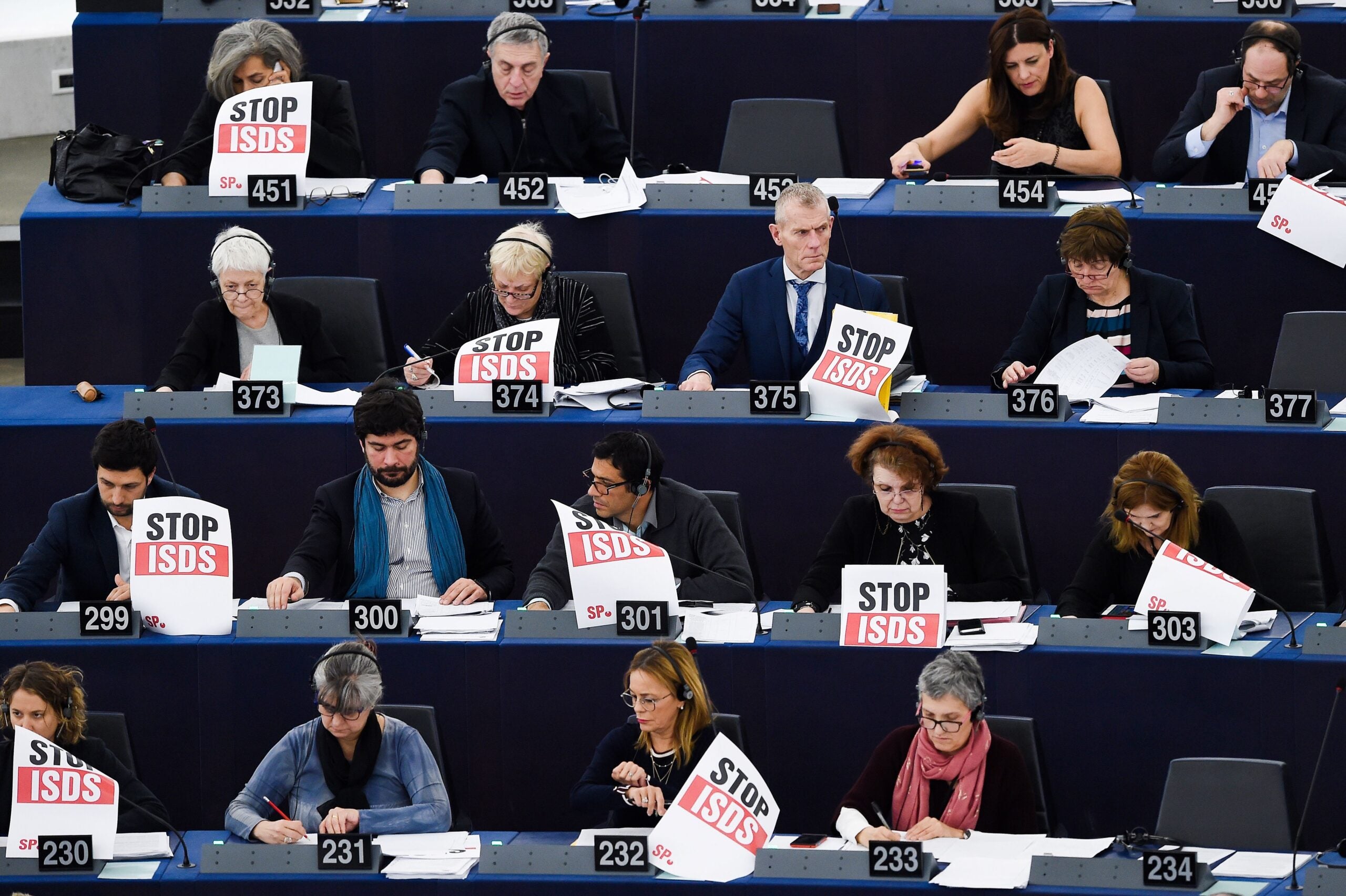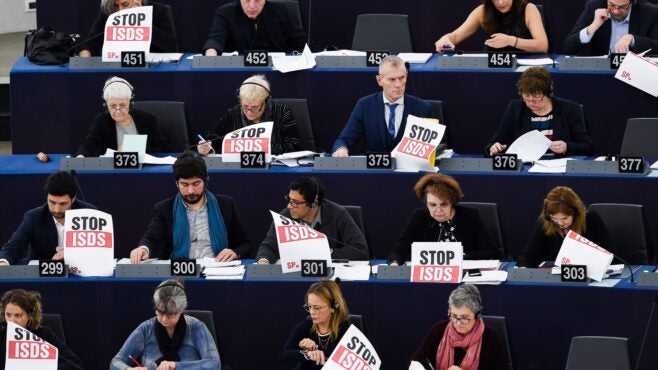
As Covid-19 ground the economy to a halt this spring, global emissions plummeted, the stock prices of top fossil fuel companies almost halved and US oil prices briefly turned negative.
However, despite being faced with a future in which such contractions are inevitable, investment in fossil fuels has broadly continued apace. A recent study suggests many fossil fuel investors remain relatively unconcerned about potential risks, expecting that losses from asset stranding will be offset by government compensation.

Global end-use spending on oil, coal and gas rose by 51% between 2000 and 2019, yet the full value of many of these investments will not be realised if governments are to meet climate commitments, leaving them ‘stranded’ – unusable before the end of their natural or expected lifespan.
Limiting global warming to 2°C, as agreed under the Paris Agreement, will require a third of proven oil reserves, half of proven gas reserves and 82% of proven coal reserves to be left in the ground. Yet in the UK, for example, less than a fifth of oil and gas extraction licences, by area, are set to expire before 2040.

US Tariffs are shifting - will you react or anticipate?
Don’t let policy changes catch you off guard. Stay proactive with real-time data and expert analysis.
By GlobalDataThe risk of asset stranding is particularly acute in the Global South, where recent investments in fossil fuel extraction, processing and distribution have been concentrated.
Estimates of the total value of power sector investments likely to be stranded by the energy transition between 2016 and 2050 range from $927bn to $1.8trn. When upstream investments, buildings and industry are taken into account, this rises to between $10trn and $20trn.
Given the likelihood of asset stranding, the willingness of investors to continue investing in fossil fuels may be puzzling.
A recent study by researchers in Germany, however, suggests many fossil fuel investors are less worried than they should be about such investments as they generally expect that losses from asset stranding will be offset by government compensation.
Such expectations are not without reason. Another recent study, by professors Kyla Tienhaara and Lorenzo Cotula from the UK-based International Institute for Environment and Development, warns that if such compensation is not awarded voluntarily, companies could sue governments to obtain it through investor-state dispute settlements (ISDS).
A legal nightmare
A network of over 2,600 investment treaties provides the basis for ISDS, a system that allows foreign investors to sue their host state for ill-treatment – bypassing domestic courts in favour of an international tribunal.
Most of these treaties were signed in the 1990s by countries looking to attract foreign direct investment (FDI), although research increasingly suggests they have no impact on inward FDI flows.
Investment treaties typically grant broad rights to investors. One of the most frequently invoked treaty provisions is the right to “fair and equitable treatment” (FET). This has been interpreted as requiring that states act consistently, unambiguously and transparently, and that any measure that harms an investor’s profits is neither discriminatory nor disproportionate.
“As long as a company has the go-ahead, a permit or even a letter saying it is encouraged to come and invest, then it has a pretty decent case for the FET argument,” says Tienhaara. “The FET standard has really become this gaping hole that can encompass anything, and it gets interpreted very differently depending on which arbitrators are presiding over a case. It comes to seem as though it is really more of an ideological decision a lot of the time rather than one based on the law.”
Investment treaties also typically prohibit expropriation without full, market-value compensation, unlike many domestic courts and the European Court of Human Rights, which allow the market value of an asset to be balanced against public interest.
These protections also extend to cases of “indirect expropriation”, a loosely defined term interpreted as including any situation in which the state deprives an investor of the use or benefit of their investment – for a period as little as four months.
The vague wording of treaty provisions is compounded by the fact arbitrators are not required to abide by previous rulings. Such a high degree of discretion in deciding awards that are legally enforceable, frequently very large and almost never open to appeal, gives arbitrators an extraordinary amount of power over sovereign governments.
The system has also been criticised for distorting the market, granting rights to foreign investors that are not available to domestic investors and socialising the risks associated with foreign investment.
“It is a concern I have – that ISDS does act as a partial de-risking of projects that should be viewed as incredibly risky,” says Tienhaara.
Todd Weiler, an independent Canadian lawyer specialising in ISDS, thinks concerns of a wave of litigation targeting bona fide climate change mitigation measures are overblown.
“That is crazy talk,” he says, insisting that corporations don’t like litigation. “They really, really want to avoid it and especially complex litigation. Investor-state disputes are very complex litigation – it easily takes five years on average, if not longer. If you are an investor, you don’t want your assets stranded and then a chance of recovery after five years – and then you have to factor in the chance that you may win or lose.”
Awards worth billions
The calculation of ISDS awards has also attracted controversy, with many tribunals basing them on an asset’s expected lifetime income – resulting in awards far larger than the amount actually invested.
In 2019, the Chilean-Canadian firm Tethyan was awarded $4bn against Pakistan in compensation for the rejection of a copper mining permit, despite having sunk only $220m into the project.
Publicly known awards average $500m and are increasing, with 19 of the 20 largest awards being made in the last decade.
“The crazy [awards] – billions of dollars for mines that have never been built – are really quite legitimately scary for governments and that is why it is such a useful tool for companies to use to pressure them,” Tienhaara says.
ISDS awards can be particularly damaging for low-income countries. The Tethyan award is equivalent to 70% of Pakistan’s yearly education budget, and is 60% larger than its annual healthcare spending.
Weiler argues that the costs of launching disputes makes it unlikely companies would launch a frivolous claim.
“If you have a dispute that is like $10m, you have to really think about whether you are going to want to bother going ahead with it because it is going to cost you at least $5m and probably more to bring a case, so why bother throwing good money after bad?” he says.
However, legal fees average $8m per party and awards $500m. In such a scenario, even a claim with a 2% chance of success could be economical for a claimant to pursue, provided they are willing to potentially damage their relationship with the host state.
Opponents of ISDS have long warned that large awards could discourage states from pursuing socially desirable regulations as a result of ‘regulatory chill’. Whether such a phenomenon exists or not is difficult to prove, but several cases suggest the risk of ISDS claims can affect policy decisions.
In 2017, France announced it would end all fossil fuel extraction in its territories by 2040 to meet its Paris commitments, effectively requiring the non-renewal of permits beyond 2030. In response, the Canadian energy firm Vermillion threatened arbitration, a threat that was dropped after France revised its proposal to allow the renewal of permits until 2040.
Even where the risk of ISDS claims does not cause states to withdraw or revise proposed regulations, Tienhaara fears it could increase the bargaining power of firms in compensation negotiations.
“Many of us [are concerned] that even the threat of a big, expensive case can be enough to dissuade or to push a government to give more compensation to a company than they otherwise would,” she says.
Germany’s controversial offer of €4.35bn in compensation to the owners of lignite power plants to be shuttered by 2035 has been attributed by German jurist Tobias Stoll to a desire to avoid ISDS disputes.
The broad definition of ‘investment’ provided by most investment treaties means that, in contrast to many national legal systems, potential claimants include not only the companies, but also their shareholders. Data on the identity of claimants is often difficult to come by, but one study found 88% of ISDS cases against Spain were launched by private equity funds and other financial investors.
Fossil fuel investors are already accustomed to launching ISDS disputes, and have tended to come out on top. States have won just 29% of resolved fossil fuel disputes, with the rest either resulting in an investor victory or a settlement.
Fossil fuel investors also tend to be involved in the largest disputes. Seven of the ten largest awards given under ISDS have gone to fossil fuel investors.
So far, there have only been a few ISDS claims resulting from energy transition-related asset stranding.
In 2016, the Obama administration denied a permit for the Keystone XL pipeline on the grounds its construction would be incompatible with the country’s climate change commitments. The permit-holder, TransCanada, soon launched an ISDS dispute, claiming $15bn in compensation by arguing it had been discriminated against – no previous president, the firm argued, had denied such a permit. The case was dropped after Trump reversed Obama’s decision, but could return under Biden.
Meanwhile, the US coal-mining company Westmoreland has demanded $470m in damages from Canada over Alberta’s coal phase-out, while Germany-based Uniper has threatened to sue the Dutch government for its measures to eliminate coal power by 2030.
Most recently, in December 2020, the British energy firm ContourGlobal initiated arbitration proceedings against Kosovo over its decision to cancel a planned coal-fired power station.
These cases have tended to target countries in the Global North, but Tienhaara expects this to change in the coming years as global action to reduce carbon emissions intensifies and its locus moves from north to south.
“You also don’t know what happens behind the scenes,” says Tienhaara. “There are potentially cases where governments have been influenced by threats, we just wouldn’t know.”
This article is part of a New Statesman series on green free trade. See also:
Green free trade: Oxymoron or potential climate action tool?



